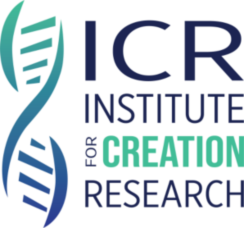by John D. Morris, Ph.D.
There is much misinformation about these two words, and yet, understanding them is perhaps the crucial prerequisite for understanding the creation/evolution issue.
Macroevolution refers to major evolutionary changes over time, the origin of new types of organisms from previously existing, but different, ancestral types. Examples of this would be fish descending from an invertebrate animal, or whales descending from a land mammal. The evolutionary concept demands these bizarre changes.
Microevolution refers to varieties within a given type. Change happens within a group, but the descendant is clearly of the same type as the ancestor. This might better be called variation, or adaptation, but the changes are "horizontal" in effect, not "vertical." Such changes might be accomplished by "natural selection," in which a trait within the present variety is selected as the best for a given set of conditions, or accomplished by "artificial selection," such as when dog breeders produce a new breed of dog.
The small or microevolutionary changes occur by recombining existing genetic material within the group. As Gregor Mendel observed with his breeding studies on peas in the mid 1800's, there are natural limits to genetic change. A population of organisms can vary only so much. What causes macroevolutionary change?
Genetic mutations produce new genetic material, but do these lead to macroevolution? No truly useful mutations have ever been observed. The one most cited is the disease sickle-cell anemia, which provides an enhanced resistance to malaria. How could the occasionally deadly disease of SSA ever produce big-scale change?
Evolutionists assume that the small, horizontal microevolutionary changes (which are observed) lead to large, vertical macroevolutionary changes (which are never observed). This philosophical leap of faith lies at the eve of evolution thinking.
A review of any biology textbook will include a discussion of microevolutionary changes. This list will include the variety of beak shape among the finches of the Galapagos Islands, Darwin's favorite example. Always mentioned is the peppered moth in England, a population of moths whose dominant color shifted during the Industrial Revolution, when soot covered the trees. Insect populations become resistant to DDT, and germs become resistant to antibiotics. While in each case, observed change was limited to microevolution, the inference is that these minor changes can be extrapolated over many generations to macroevolution.
In 1980 about 150 of the world's leading evolutionary theorists gathered at the University of Chicago for a conference entitled "Macroevolution." Their task: "to consider the mechanisms that underlie the origin of species" (Lewin, Science vol. 210, pp. 883-887). "The central question of the Chicago conference was whether the mechanisms underlying microevolution can be extrapolated to explain the phenomena of macroevolution . . . the answer can be given as a clear, No."
Thus the scientific observations support the creation tenet that each basic type is separate and distinct from all others, and that while variation is inevitable, macroevolution does not and did not happen.
Macroevolution refers to major evolutionary changes over time, the origin of new types of organisms from previously existing, but different, ancestral types. Examples of this would be fish descending from an invertebrate animal, or whales descending from a land mammal. The evolutionary concept demands these bizarre changes.
Microevolution refers to varieties within a given type. Change happens within a group, but the descendant is clearly of the same type as the ancestor. This might better be called variation, or adaptation, but the changes are "horizontal" in effect, not "vertical." Such changes might be accomplished by "natural selection," in which a trait within the present variety is selected as the best for a given set of conditions, or accomplished by "artificial selection," such as when dog breeders produce a new breed of dog.
The small or microevolutionary changes occur by recombining existing genetic material within the group. As Gregor Mendel observed with his breeding studies on peas in the mid 1800's, there are natural limits to genetic change. A population of organisms can vary only so much. What causes macroevolutionary change?
Genetic mutations produce new genetic material, but do these lead to macroevolution? No truly useful mutations have ever been observed. The one most cited is the disease sickle-cell anemia, which provides an enhanced resistance to malaria. How could the occasionally deadly disease of SSA ever produce big-scale change?
Evolutionists assume that the small, horizontal microevolutionary changes (which are observed) lead to large, vertical macroevolutionary changes (which are never observed). This philosophical leap of faith lies at the eve of evolution thinking.
A review of any biology textbook will include a discussion of microevolutionary changes. This list will include the variety of beak shape among the finches of the Galapagos Islands, Darwin's favorite example. Always mentioned is the peppered moth in England, a population of moths whose dominant color shifted during the Industrial Revolution, when soot covered the trees. Insect populations become resistant to DDT, and germs become resistant to antibiotics. While in each case, observed change was limited to microevolution, the inference is that these minor changes can be extrapolated over many generations to macroevolution.
In 1980 about 150 of the world's leading evolutionary theorists gathered at the University of Chicago for a conference entitled "Macroevolution." Their task: "to consider the mechanisms that underlie the origin of species" (Lewin, Science vol. 210, pp. 883-887). "The central question of the Chicago conference was whether the mechanisms underlying microevolution can be extrapolated to explain the phenomena of macroevolution . . . the answer can be given as a clear, No."
Thus the scientific observations support the creation tenet that each basic type is separate and distinct from all others, and that while variation is inevitable, macroevolution does not and did not happen.





Leave a comment: